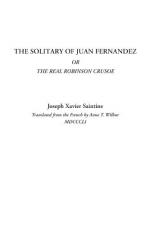Ambitious youth, thou hast thus realized one of thy brightest dreams! Dost thou remember the day when, on the way from Largo to St. Andrew, to join William Dampier, thou didst already see thyself the chief of a new country, discovered and baptized by thee?
Well! has he not more than discovered this country? He inhabits it, he governs it, he reigns in it! Not satisfied with giving his name to the island, he soon creates a special nomenclature for its various localities. To the shore upon which he landed, he gives the name of Swordfish Beach; the pile of white and red rocks, which he saw through the fog, is the False Coquimbo; he calls Toucan Forest, the wood where he saw that bird for the first time; the Defile of Attack, is that where Marimonda assaulted him with stones; upon these arid rocks, furrowed by deep ravines and abounding in precipices, he has imposed the odious name of Stradling! In his mountains he has the Oasis; it is a little shady valley, enlivened by the murmur of a streamlet, and with one extremity opening to the sea. There he often goes to watch the game and the goats, which come to drink at the brook. Above it rises the table-land, with difficulty scaled by him on the day of his arrival, and from whence he became convinced that he had landed on an island. This table-land, he has named The Discovery.
The two streams which meander over his lawn, and before his grotto, have also received names. This, commissioned to feed the fish-pond, and which gently warbles through the grass, he calls The Linnet; the other, interrupted by little cascades, and whose course is more rapid and impetuous, he calls The Stammerer.
He has now destroyed the noxious animals, administered government, opened ways of communication, given a name to every part of his island. How many great rulers have done no more!
But his labors have not been confined to his fish-pond, his bed of water-cresses, his hunting, fishing, building, felling of trees; it has become necessary to procure that essential element of civilization, of comfort, fire.
What could the opulent proprietor of this enchanting abode do without fire? Is it not necessary, if he would open a passage through the dense woods? Is it not indispensable to his kitchen? Some of his trees, it is true, afford fruits in abundance; but most of these fruits are of a dry and woody nature; besides, young and vigorous, easily acquiring an appetite by labor and exercise, can he content himself with a dinner which is only a dessert? Surrounded with fishes of all colors, with feathered and other game, must he then be reduced to dispute with the agoutis, their maripa-nuts?




